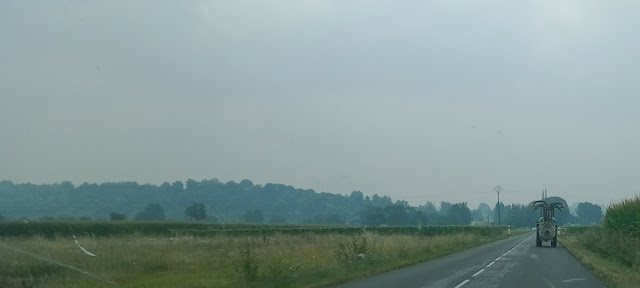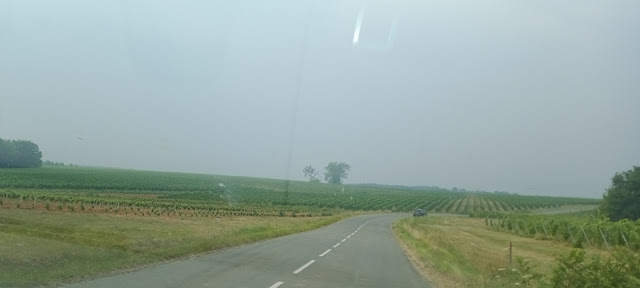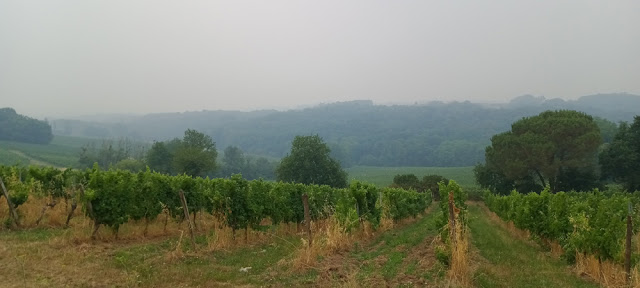When we drove through the famous Saint Emilion wine region in July last year there was smoke from wild fires hanging in the air. And that is just the start of their climate change worries. It's increasingly hotter and drier, which is a problem for the quality of the wines from this high status wine region. Merlot is widely used in the region, and with hotter weather it is a struggle to keep the alcohol content of the wine made from this variety down to an acceptable level.
After over 50 varieties were tested for their adaptability to climate change, the Bordeaux winemakers proposed seven new grape varieties to INAO, the government agency that administers the Appellation d'Origin Controlé rules. Six of those varieties were accepted and they will give the winemakers flexibility with their blends, allowing them to halt the trend for earlier harvest and maintain production of the light and elegant style of wine that Bordeaux is world famous for. They were careful to choose varieties that are not well known (in France at least), and especially not varieties that are typical for other regions, as they felt that would not be fair.
Initially, any vineyard planting these new varieties will be closely monitored. They will need to restrict the area planted and their blends can contain no more than 10% of the new varieties so as not to overly influence the final wine. It also means that the new varieties will not have to be legally listed on the labels, and growers have been asked not to talk about them, so as not to influence the market. Samples will have to be sent to a Bordeaux winemakers committee for tasting to ensure quality is being maintained.
This experimental phase is set to run for 10 years, with the possibility of extending the period another 10 years. After that these varieties will be formally adopted, or rejected if it is felt they change the profile of the wine too much. At the moment only vines of the species Vitis vinifera can be used, but even this may change in time.




4 comments:
Now that is fascinating....
Le Pré de la Forge: extremely interesting, yes.
Back in the 1990s whle we lived in York ,UK, they said that Climate Change would bring the climate of Bordeaux to us in Yorkshire. I remember we thought that that would be no bad thing!
Potty: Ah yes, the good old days of Global Warming.
Post a Comment